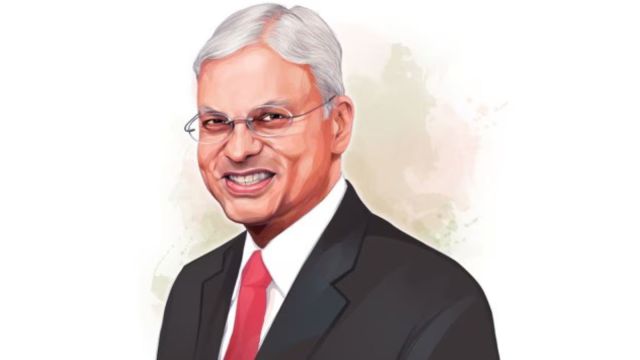Indian-American expert Ashley Tellis arrested for storing secret US documents; FBI flags meetings with Chinese officials
Ashley Tellis was charged in a federal court after FBI agents who searched his home in Virginia said they found a trove of records marked as classified.
 According to the official statement, Tellis, 64, a resident of Vienna, Virginia, was taken into custody over the weekend. (File Photo)
According to the official statement, Tellis, 64, a resident of Vienna, Virginia, was taken into custody over the weekend. (File Photo)ASHLEY J Tellis, 64, a prominent Indian-American strategic affairs expert who was part of the George W Bush administration and played a role in negotiations that led to the India-US nuclear deal, was arrested over the weekend and charged with the “unlawful retention of national defence information”, the US Department of Justice (DoJ) said Wednesday.
“We are fully focused on protecting the American people from all threats, foreign and domestic.
The charges as alleged in this case represent a grave risk to the safety and security of our citizens,” said Lindsey Halligan, US. Attorney for the Eastern District of Virginia. “The facts and the law in this case are clear, and we will continue following them to ensure that justice is served.”
Tellis was arrested after FBI agents searched his home in Vienna, Virginia, and, according to Associated Press, found a trove of records marked as classified at the “secret and top secret levels.”
AP reported that the FBI affidavit cites several instances over the last month in which Tellis is alleged to have “printed on government computers, or asked a colleague to print, classified documents on topics including US military aircraft capabilities.” Surveillance video, the report said, shows him on several occasions exiting the US State Department and a US Defence Department facility with a briefcase in which he was believed to have stashed the printed-out papers, according to court documents.
According to the AP report, Tellis also met multiple times with Chinese government officials in recent years, according to the affidavit. Tellis arrived to one 2022 dinner with a manila folder while the Chinese officials he was meeting with entered with a gift bag, the FBI says. The affidavit says Tellis did not appear to have the manila folder in his possession when he left the restaurant but does not accuse him of providing any classified information during his meetings with the Chinese.
He has also been accused of “storing more than 1,000 pages of highly sensitive government records in filing cabinets and trash bags at home, court records said.
If convicted, Tellis, currently the Tata Chair for Strategic Affairs and a senior fellow at the Carnegie Endowment for International Peace, could get a maximum of 10 years in prison and up to a $250,000 fine, the DoJ statement said. Actual sentences for federal crimes are typically less than the maximum penalties.
The statement added that the criminal complaint is “merely an accusation” and the defendant is presumed innocent until proven guilty.
Tellis, who has also worked as a contractor in the Defense Department’s Office of Net Assessment, was charged in federal court in Virginia and ordered detained Tuesday pending a detention hearing next week.
One of his lawyers, Deborah Curtis, told AP: “We look forward to the hearing, where we’ll be able to present evidence” but declined to comment further.
When contacted, Katelynn Vogt, Vice President for Communications, Carnegie Endowment for International Peace, told The Indian Express, “We are aware of the allegations against Ashley J. Tellis. He is now on administrative leave, including from his role as Tata Chair for Strategic Affairs.”
Born in Mumbai, Tellis earned his PhD in political science from University of Chicago. While on assignment to the US Department of State as senior adviser to the undersecretary of state for political affairs, he was involved in negotiating the civil nuclear agreement with India.
Previously he was commissioned into the US Foreign Service and served as senior adviser to the Ambassador at the US Embassy in New Delhi. He also served on the National Security Council staff as special assistant to President George W Bush and senior director for strategic planning and Southwest Asia.
He is a counselor at the National Bureau of Asian Research, the research director of its Strategic Asia program, and co-editor of the program’s annual volumes, including this year’s Strategic Asia: Reshaping Economic Interdependence in the Indo-Pacific.
He is the author of Striking Asymmetries: Nuclear Transitions in Southern Asia (2022); and India’s Emerging Nuclear Posture (2001); co-author of Interpreting China’s Grand Strategy: Past, Present, and Future (2000), and the co-editor of Getting India Back on Track (2014) and Grasping Greatness: Making India a Leading Power (2022).
Tellis worked with former US Ambassador to India Robert Blackwill in the early 2000s, had also served on the White House National Security Council staff under Bush. He has been instrumental in the early days of Indo-US relationship between 2001-2004, by working on the “Next Steps of the Strategic Partnership”, which led to the Indo-US nuclear deal in 2008.







